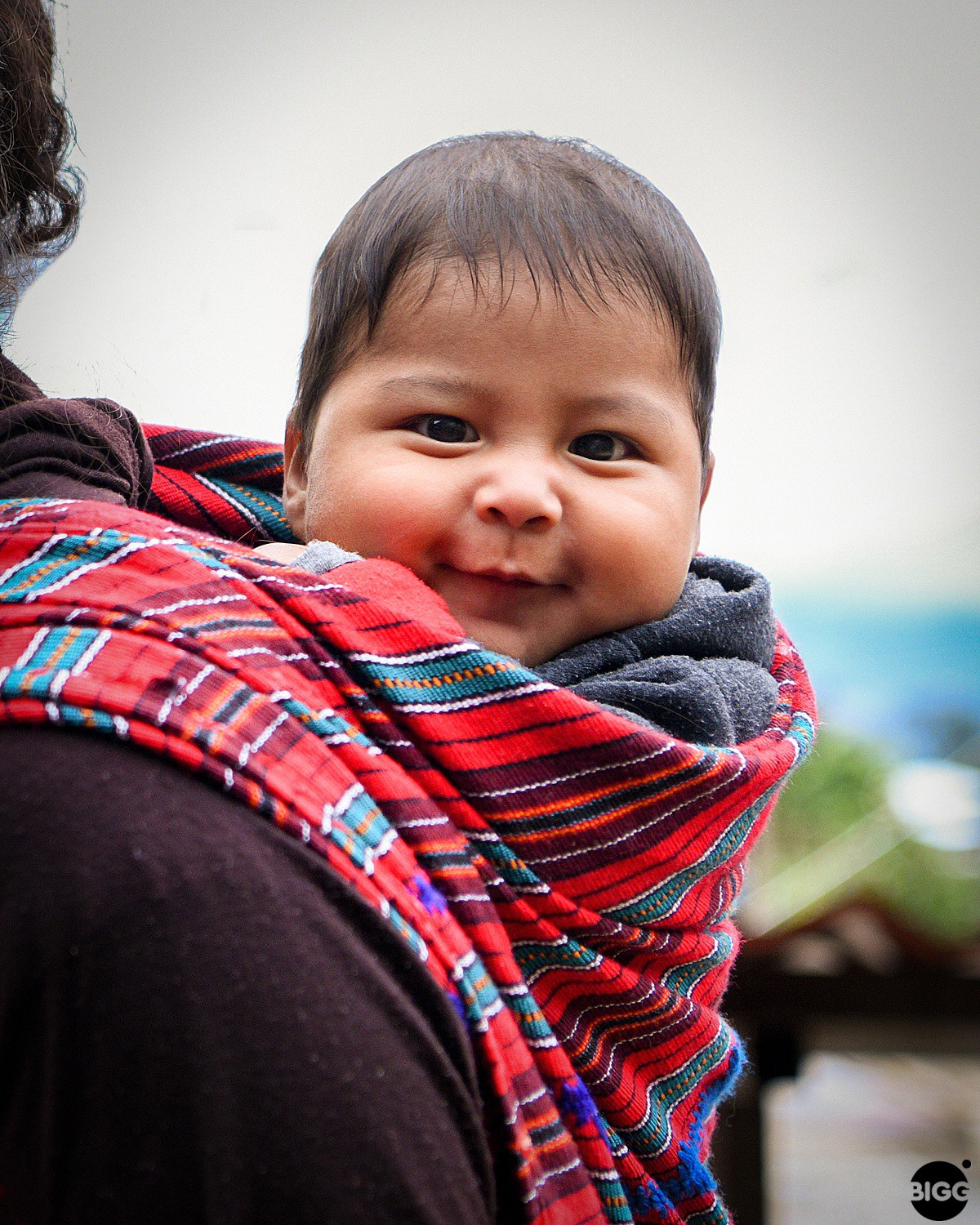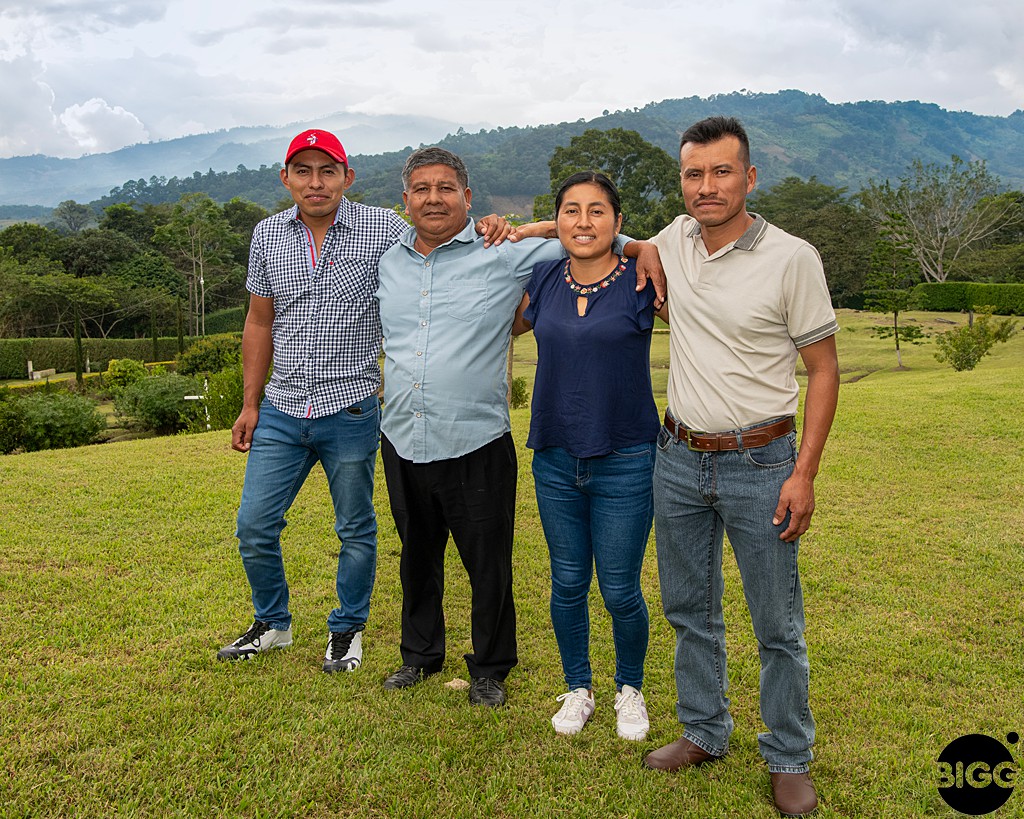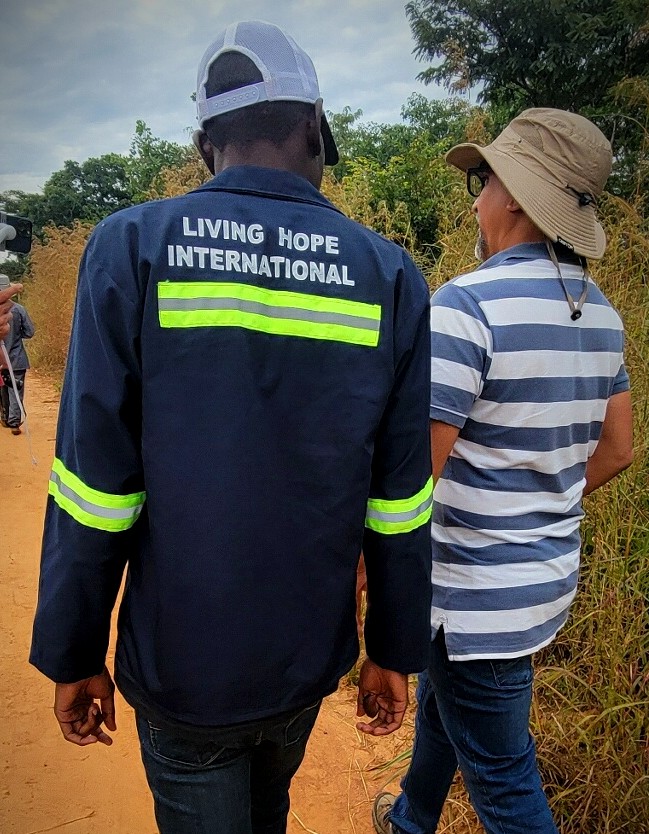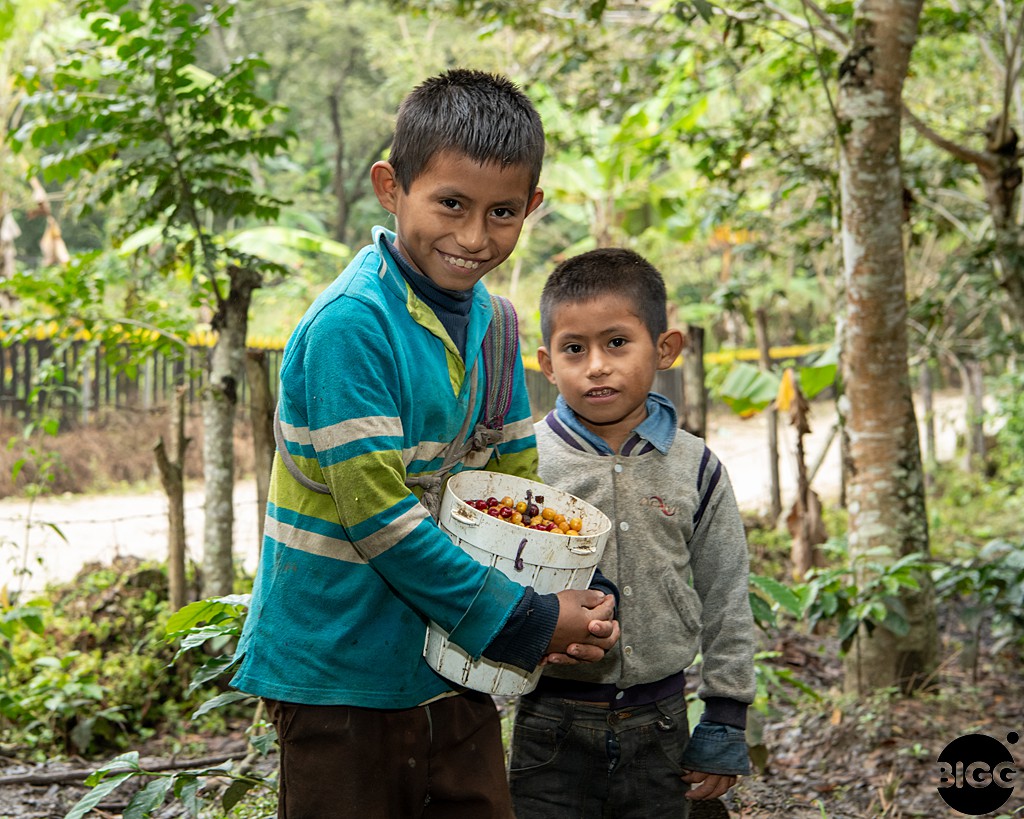By Michelle Fish
70% of the work done in coffee, from picking, to sorting, to processing, is done by women. On one of our many trips to Zambia, Bob asked a man who owns a dry mill why so many of his workers are female. He told us it’s because the work is too hard for men. In truth, though, the economic reality in most coffee producing countries is that women need to work so that they can help feed their families. And wherever there are women working, there is a need for affordable childcare.
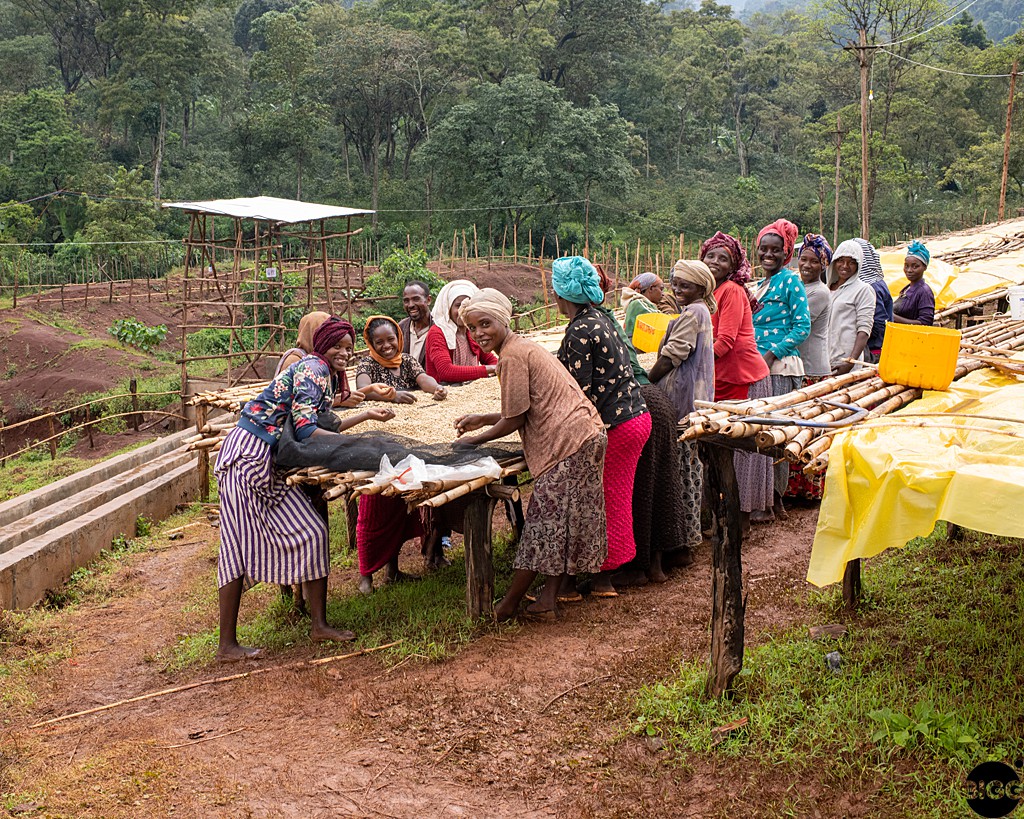
Women working the drying beds in Yirgacheffe, Ethiopia.In many of our travels, we have seen mothers working the coffee fields with their babies strapped to their backs. But when the child is too big to be carried, what happens then?
In the best-case scenario, once a child is old enough to start their education, the school would become the childcare solution. That is how it works at the El Recreo Coffee Estate, our Farm-Direct partner in Jinotega, Nicaragua.
Too often, though, and in far too many places, there just isn’t a culture of education, and there may not even be access to schools. Plus, the financial needs of the family to have as many hands picking coffee as possible often outweighs all other concerns.
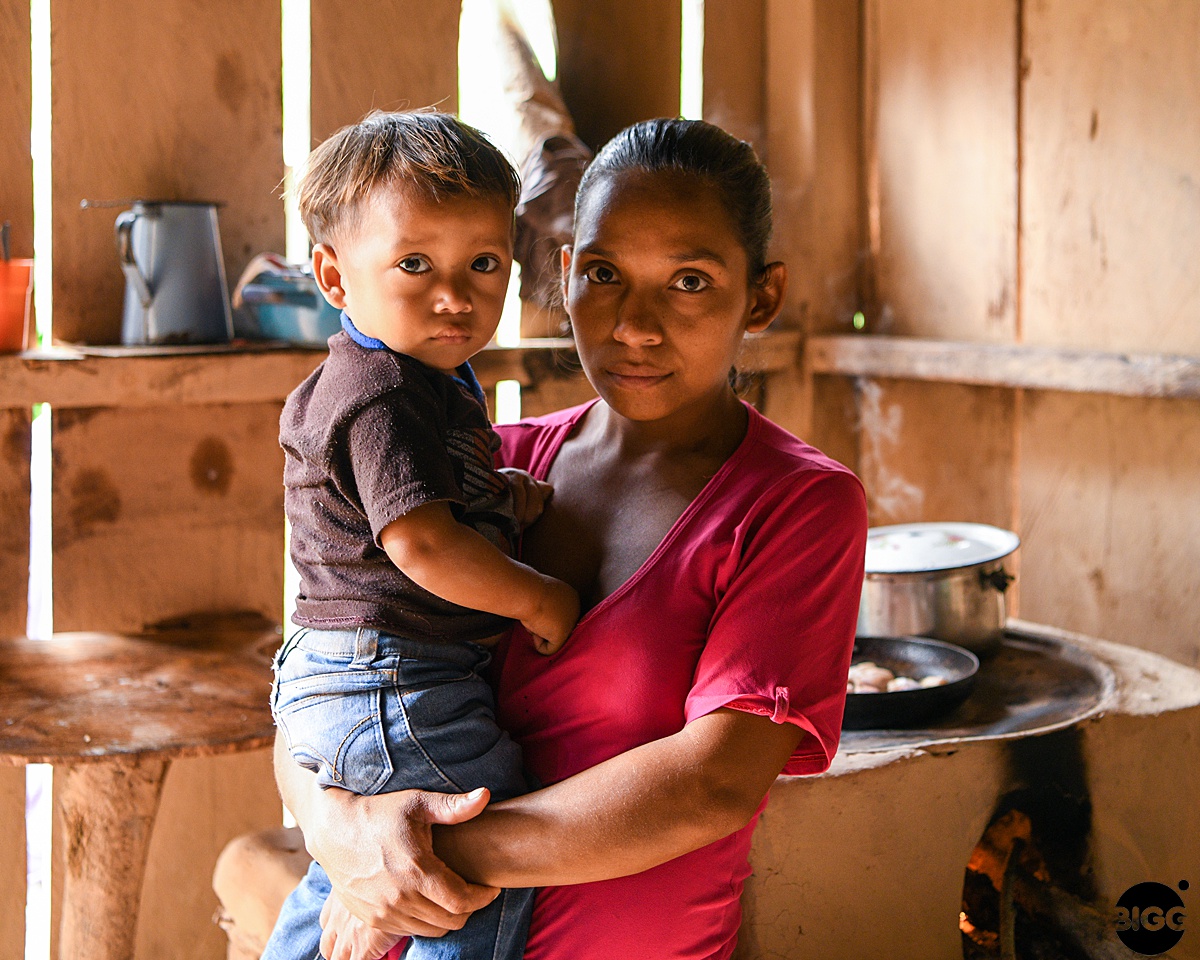
Claudia Urbina and her son Wilito at Finca Monte Fresco in Honduras. As we look to form partnerships with producers doing the right thing for their people, the planet, and their communities, one of our most important criteria is that the farm not use child labor to produce their crop. When we talk about paying a sustainable price to the producer, we want to make sure that we are paying them enough so that they, in turn, can pay their workers enough, so that they don’t have to put their children to work.
But back to the women out in the fields picking coffee with their babies strapped to their backs. We have seen with our own eyes that it’s possible, but imagine how much easier it would be if there was childcare available. After all, carrying a 10 or 15 pound child on your back all day takes its toll. And if you consider that the average worker picks around 200 pounds of coffee a day, that’s a lot of pounds to carry.
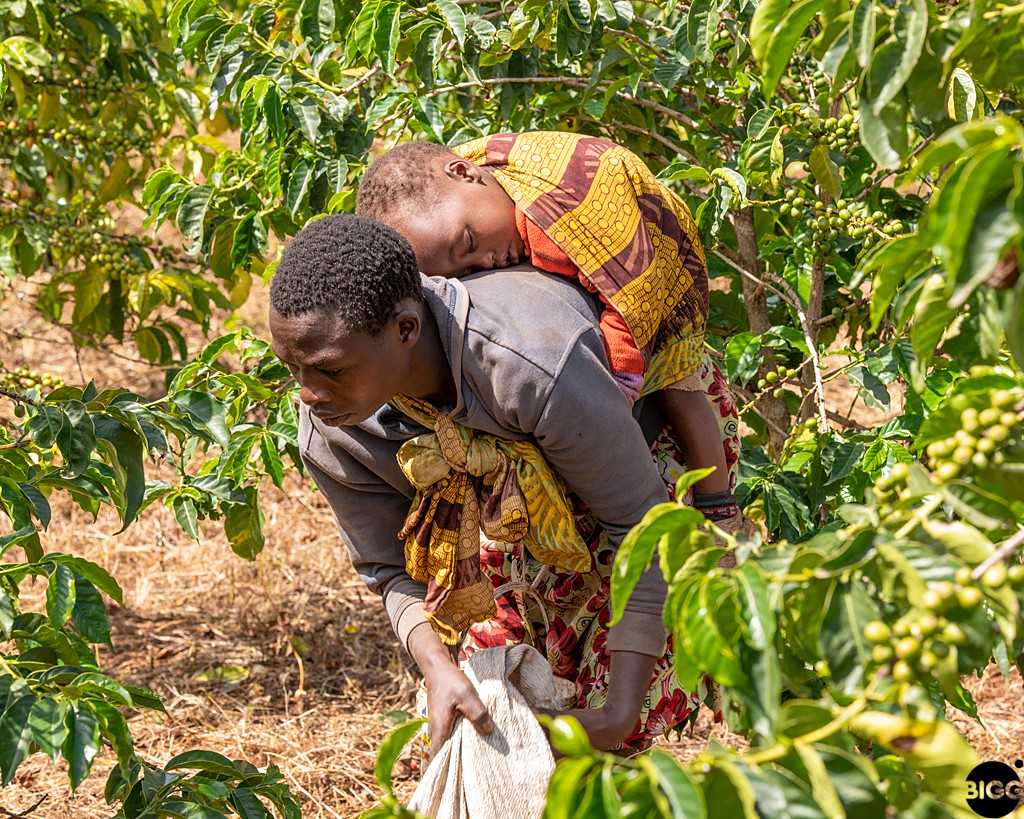
A woman picking coffee in Nakuru, Kenya. That’s why we were intrigued on our recent trip to Kenya to learn how the women on one farm have come together with a very creative solution. Several young mothers have joined forces to help each other with the childcare responsibilities. Each takes a turn being the one to sit out the day of picking, taking care of all of the children. The women in the field pool their wages, and give an equal share to the one providing the childcare.
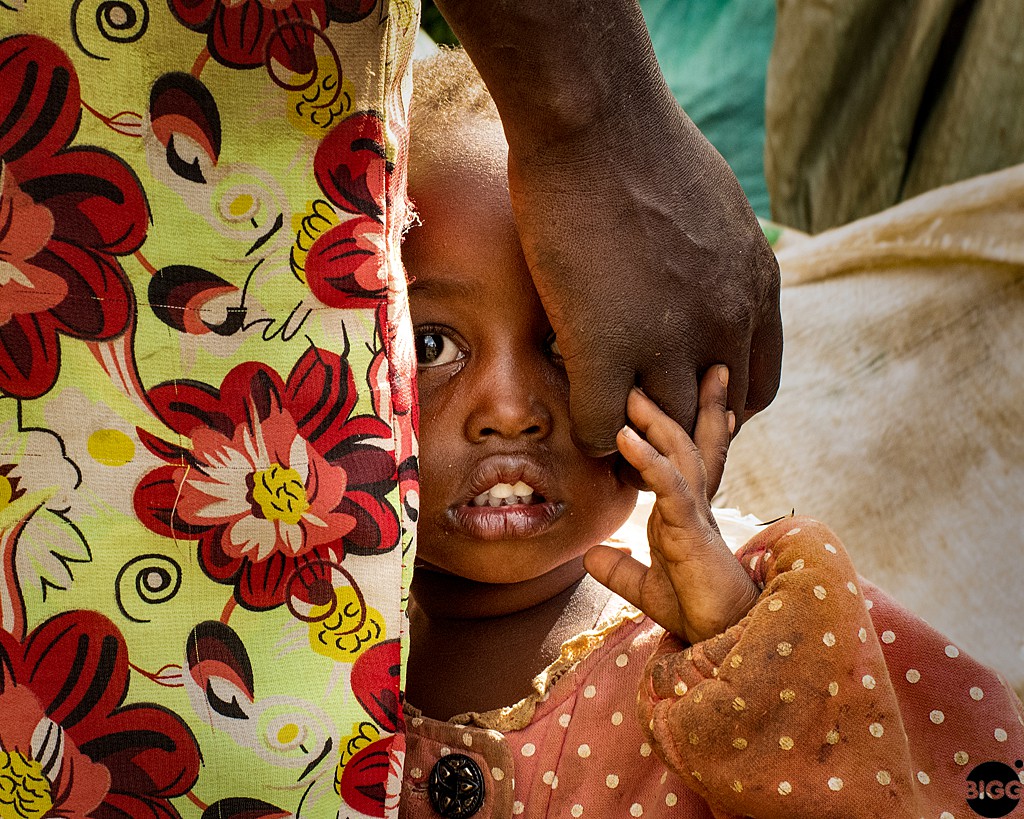
Women helping women achieve better outcomes, both for themselves, and for their children.

